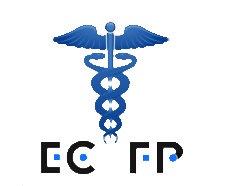Breast Cancer Awareness Month, celebrated every October, serves as a reminder of the significance of early detection, prevention, and support for those affected by breast cancer. At East Cary Family Physicians, we believe that knowledge is power. In this blog, we’ll explore the importance of Breast Cancer Awareness Month, focusing on early detection, prevention, and the vital role of regular screenings in women’s healthcare.
According to the American Cancer Society (ACS), breast cancer is the most common form of cancer in American women, except for skin cancers. The average risk of a woman in the U.S. developing breast cancer sometime in her life is about 12%, or a 1 in 8 chance. While it primarily affects women, men can also develop this disease. It’s crucial to recognize the prevalence of breast cancer to underscore the importance of awareness and education. By understanding its prevalence, we can better appreciate why the emphasis on awareness and prevention is so vital.
Understanding Signs and Symptoms: Breast cancer can manifest in various ways. Every woman should know how her breasts normally look and feel so she can recognize any changes that may occur. While knowing what to look for is important, it’s equally vital to get regular mammograms and clinical breast exams, as these tests can help detect breast cancer before symptoms appear. Signs of breast cancer may include:
- Lump in the breast or underarm (armpit)
- Swelling or thickening of all or part of the breast
- Dimpling or skin irritation of breast skin
- Localized, persistent breast pain
- Redness, scaliness, or thickening of the nipple or breast skin
- Nipple discharge (other than breast milk)
- Any change in the size or shape of the breast
Know Your Risk Factors: Risk factors for breast cancer can vary from person to person & understanding your personal risk factors for breast cancer is crucial. By identifying these factors, you can take proactive steps to reduce your risk. Some common factors that may increase the risk of developing breast cancer include:
- Gender: Breast cancer is much more common in women than in men. While men can get breast cancer, it is about 100 times more common in women.
- Age: The risk of breast cancer increases with age. Most breast cancers are diagnosed in women over the age of 50.
- Family History: A family history of breast cancer, especially in close relatives like a mother, sister, or daughter, can increase the risk. If multiple family members have had breast or ovarian cancer, or if it occurred at a young age, this risk is even higher.
- Inherited Gene Mutations: Certain genetic mutations, such as BRCA1 and BRCA2, significantly increase the risk of breast cancer. Genetic counseling and testing can help individuals understand their risk.
- Personal History: If you’ve had breast cancer in one breast, you are at an increased risk of developing it in the other breast or in a different area of the same breast.
- Breast Density: Women with denser breast tissue have a higher risk. Dense breasts can make it more challenging to detect tumors on mammograms.
- Hormone Replacement Therapy (HRT): Long-term use of hormone replacement therapy that combines estrogen and progestin can slightly increase the risk. It’s important to discuss the benefits and risks of HRT with your doctor.
- Early Menstruation and Late Menopause: Women who started menstruating before the age of 12 or went through menopause after the age of 55 are at a slightly higher risk.
- Radiation Exposure: Previous radiation treatment to the chest, such as for Hodgkin lymphoma, can increase the risk of breast cancer.
- Diet and Lifestyle Factors: Obesity, a diet high in saturated fats, alcohol consumption, and a sedentary lifestyle may contribute to an increased risk.
- Reproductive Factors: Women who have not had children or had their first child after the age of 30 may have a slightly higher risk.
Early Detection and Prevention: Early detection is often considered the best defense against breast cancer. By combining these early detection methods with a healthy lifestyle, which includes regular exercise, a balanced diet, limiting alcohol consumption, and avoiding smoking, individuals can take proactive steps in their breast health journey.
- Breast Self-Exams: Regular breast self-exams are a crucial first step in early detection. We encourage all our patients to perform monthly self-exams. Knowing how your breasts normally look and feel can help you recognize any changes that may occur.
- Clinical Breast Exams: Scheduling regular clinical breast exams is another essential component of early detection. These exams, performed by healthcare professionals, can help identify any concerning developments.
- Mammograms: Mammograms are the gold standard in breast cancer screening. They are pivotal in detecting breast cancer in its early, most treatable stages. Our clinic strongly recommends annual mammograms for women aged 40 and above. However, if you have a family history of breast cancer or other risk factors, it’s advisable to consider mammograms earlier.
Breast Cancer Awareness Month is more than just a sea of pink. It’s a time to equip ourselves with the knowledge needed for breast health. Breast Cancer Awareness Month reminds us of the importance of early detection, prevention, and support for those affected by this disease. By understanding the significance of this month, we empower ourselves and our loved ones to take control of our breast health.
At East Cary Family Physicians, we’re here to support your breast health journey. Your well-being is our top priority, and our team is ready to provide guidance, screenings, and care throughout the year, not just during Breast Cancer Awareness Month. Together, we can work toward a world with increased breast cancer awareness, early detection, and improved outcomes.


